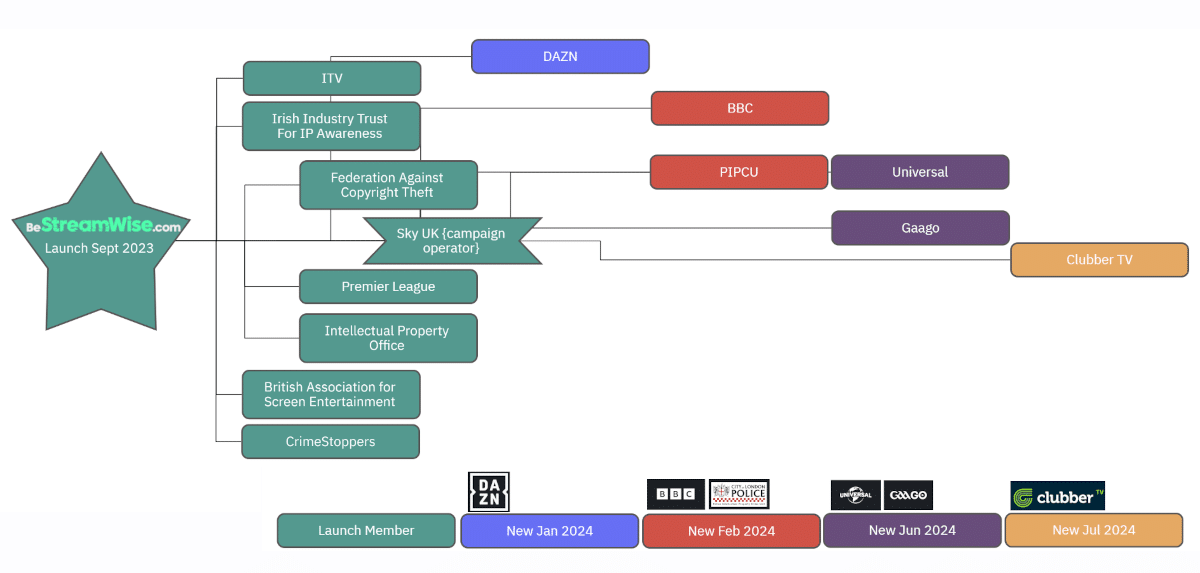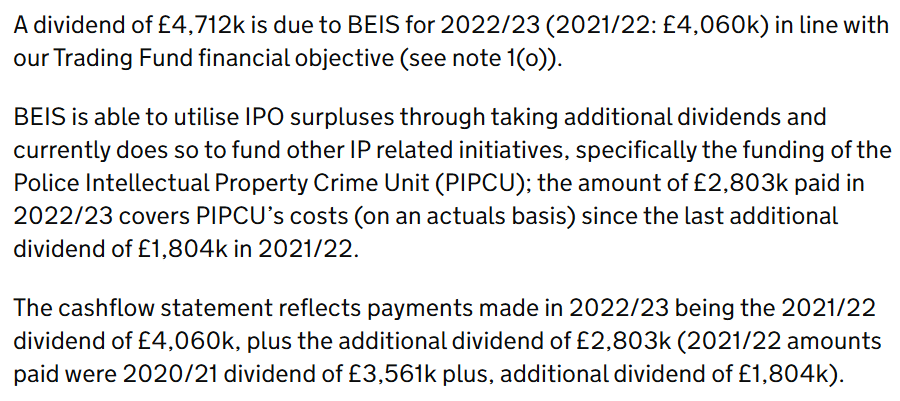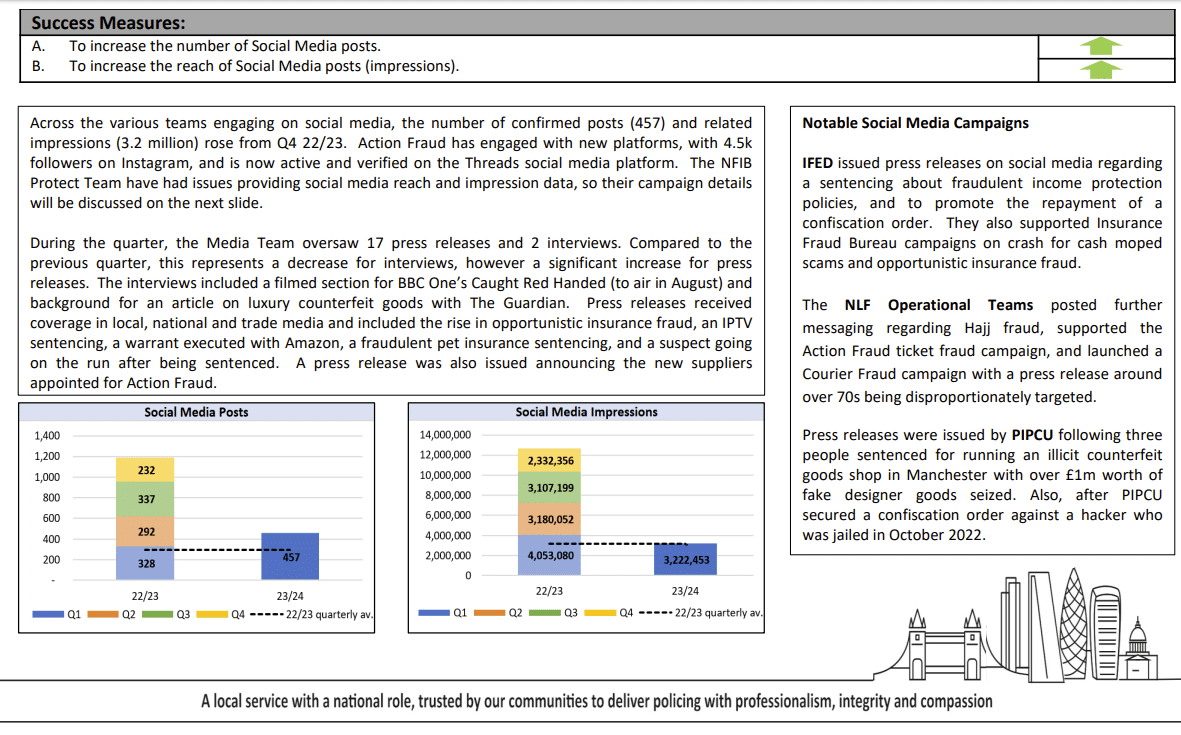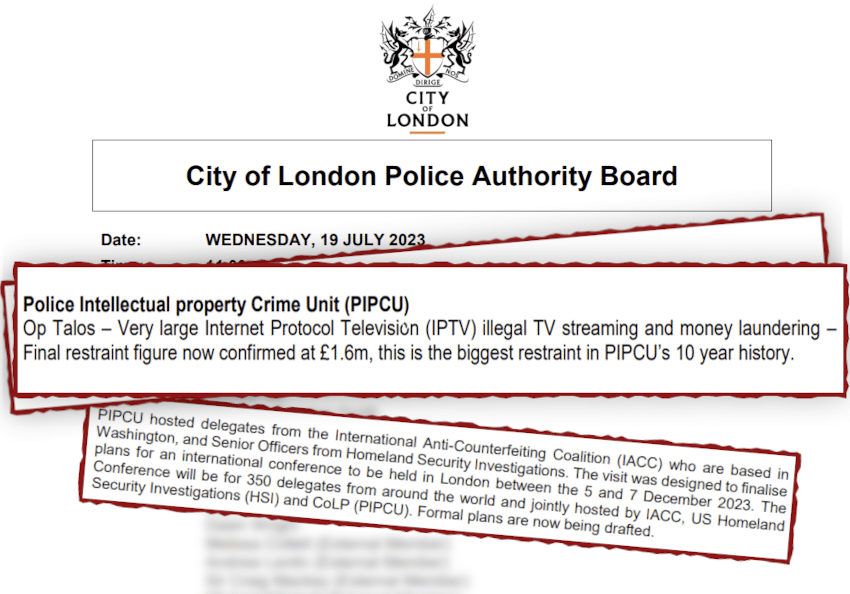-
chevron_right
Pirate IPTV Users Largely Face No Risk of Arrest, UK’s Top Piracy Cop Concedes
news.movim.eu / TorrentFreak • 23 April • 6 minutes
 For those not directly involved, assessing the effectiveness of an anti-piracy campaign meets significant challenges.
For those not directly involved, assessing the effectiveness of an anti-piracy campaign meets significant challenges.
The results of campaigns are often measured by those behind them, in some cases after receiving significant financial assistance from friendly governments. Whether by coincidence or otherwise, subsequent reports suggesting that everyone wasted their money are impossible to find.
Reports of successful campaigns are less scarce but since supporting evidence now amounts to commercially-sensitive corporate information, details showing why the investment paid off tend to be restricted.
Estimating the results of an anti-piracy campaign that strives to increase awareness is much more straightforward. Publicly unencumbered by requirements to decrease piracy while increasing sales, success amounts to more people being aware of the issues than before the campaign launched.
Piracy Awareness At Record Highs in the UK
The UK’s BeStreamWise anti-piracy campaign has been running since September/October 2023 . At launch the campaign was publicly supported by the Federation Against Copyright Theft, the UK government’s Intellectual Property Office, CrimeStoppers, British Association for Screen Entertainment, Sky, the Premier League, the Irish Industry Trust For IP Awareness, and broadcaster ITV.
During the months that followed, additional companies and organizations were revealed as backers, including DAZN, BBC, the Police Intellectual Property Crime Unit, streaming platforms GAAGO and Clubber, U.S. giant Universal, and the most recent addition, the world-famous Formula 1.

As things stand that’s already an impressive set of backers but also somewhat understated.
Through their memberships of FACT and BASE, several major entertainment companies can be added to the list.
They include The Walt Disney Company, Warner Bros., Sony Pictures, Studio Canal, Virgin Media, TNT, Lionsgate, Mattel, and Crunchyroll, to name a few. The overwhelming majority haven’t been publicly associated with the campaign in any way, with FACT shouldering most of the overt press appearances. Commentary provided is regularly attributed to FACT, but not explicitly stated as provided on behalf of the campaign.
If piracy awareness was the goal, mission accomplished. Awareness of pirate set-top boxes and the possibility of obtaining all media for free is at an all-time high in the UK. Much of the credit for that goes to the tabloid media for their sustained wall-to-wall piracy coverage over the past 18 months.
Divide and Conquer – GENTLY
Unlike many traditional anti-piracy campaigns that demonized suppliers and consumers of pirated content, BeStreamWise launched with emphasis on the risks associated with illegal content consumption, such as malware, credit card fraud, and identity theft.
By not immediately going to war with those consuming pirated content, the scale of any pushback was naturally limited, and the nightmare scenario of the campaign itself providing the fuel for opposition was effectively eliminated. That theoretically provided BeStreamWise with space to undermine loyalty to pirate suppliers and gently ease consumers back onside against a common adversary .
Perceptions of how things played out will obviously vary. However, of the 27 or so news updates subsequently published on the BeStreamWise portal, just three or four addressed the main theme of the campaign (consumer risk). The overwhelming majority reported on “crackdowns” on illegal IPTV services, raids, arrests, people being fined, imprisoned, and otherwise being held accountable for piracy activities.
This tends to suggest that warning messages are still perceived as important, if the confrontation they generate can be effectively managed.
Be Polite, Always Credit the Source
The BeStreamWise campaign’s official work with the media, and the motivation behind hundreds of articles published by the UK tabloids containing exactly the same talking points and overall narrative, show few clear dividing lines. Comments from Sky and the Intellectual Property Office, for example, are notable for their clear attribution , albeit in relatively few articles.
The individual companies and government departments behind BeStreamWise are known to communicate with the press, but attribution is consistently limited. Commentary from the campaign itself has in many cases gone uncredited in much the same way.
Despite being involved in a major national campaign, the Intellectual Property Office website lacks any public mention of BeStreamWise, while a trawl of its expenditure records reveals no direct references to financial assistance or details of resource allocation. The apparent disconnect seems unusual but considering the sensational and often misleading information churned out in local media, maintaining distance may avoid most of the embarrassing questions.
Warnings Published Regularly in the Media
Persistent media claims that users of pirate set-top boxes face up to a decade of imprisonment, are stated as fact but without attribution. Other distortions implying that police are somewhat routinely knocking on doors in search of people watching illegal streams, after tracking users down with vehicle-based ‘ illegal streaming detection technology ‘, receive exactly the same treatment.
These are just two examples of the type of commentary that has run alongside the campaign, in articles that mention the campaign and others that don’t. These claims are never directly linked to the campaign and that may be for good reason, i.e the campaign was not the source. Unfortunately, citing sources is extremely rare; corrections rarer still.
Statements similar to the above often appear in articles that unhelpfully conflate, or fail to differentiate between, action against suppliers and sellers of pirate streams, and the alleged threat of action against consumers of pirated content. We’ve highlighted this problem several times before, including directly, but to no avail.
Interestingly, confirmation that users are unlikely to face arrest arrived just a few days ago, in an article mentioning the BeStreamWise campaign where the source was actually cited.
Individuals Largely Use ‘Illegal Fire Sticks’ “Without Any Risk of Arrest”
Published in the Financial Times behind a paywall , the article’s headline speaks volumes. “Number of UK consumers streaming sports illegally has gone ‘through the roof’, police say” is the last thing rightsholders want to hear, but nonetheless typical of recent dreary assessments concerning the fight against piracy.
The article centers on an interview with Detective Chief Inspector Emma Warbey, the head of the Police Intellectual Property Crime Unit at City of London Police. For the sake of clarity, the introduction and one additional paragraph are reproduced verbatim below.
The number of people who stream sports or other channels illegally in the UK has gone “through the roof” — straining already-stretched police forces in their efforts to prosecute consumers who flout the law, the head of Britain’s intellectual property crime unit has said.
Emma Warbey, detective chief inspector and head of the Police Intellectual Property Crime Unit at the City of London Police, admitted individuals were largely able to use “broken” illegal fire sticks without risk of arrest by her team as officers targeted organized crime groups and resellers at the head of such schemes.
————–
Warbey said it would be wrong to conclude that using illegal streams to watch sports and other paid TV content was a risk-free way of watching media, pointing to fraud and funding for organized crime gangs. She said her team had focused efforts on tackling “resellers and the people at the top of the tree” given that “it’s really hard to stop people doing it”.
She added: “We always follow the money and go for the bigger organized crime groups and the bigger organized crime networks.”
The suggestion by the FT that consumers may have been at least considered for potential arrest is not especially surprising, but still falls way short of the scenarios suggested in the media.
The reality that police don’t have the necessary resources to pursue individual consumers is not surprising at all, but it would’ve been very effective at fueling the type of opposition BeStreamWise has largely avoided.
What happens should the more gentle approach be considered ineffective, is the same unanswered question repeated several times annually for the last 25 years.
From: TF , for the latest news on copyright battles, piracy and more.

 The latest wave of the UK government’s Copyright Infringement Tracker study was expected a year ago. There’s still no indication when it will arrive, or even if it will arrive at all, a shame considering interest generated by previous reports.
The latest wave of the UK government’s Copyright Infringement Tracker study was expected a year ago. There’s still no indication when it will arrive, or even if it will arrive at all, a shame considering interest generated by previous reports.


